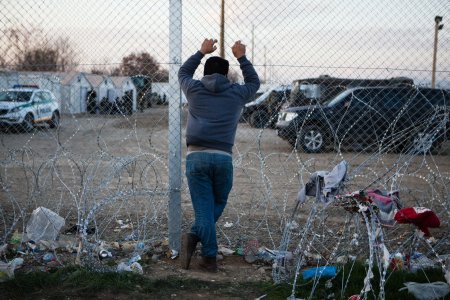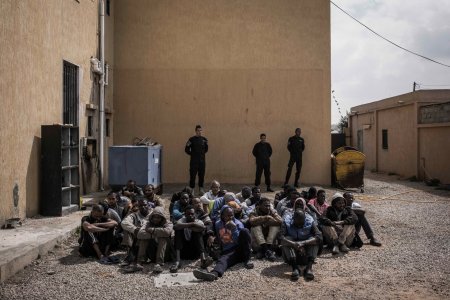
Borders and Hospitality
Benjamin Boudou
The Crash team had the pleasure of welcoming Benjamin Boudou, politician and researcher at the Max Planck Institute, for a conference-debate on November 26, 2018. The meeting was prepared and moderated by Michaël Neuman.
In light of the very rich news environment regarding the management of migration flows, the consequences of the control exerted over borders and the linkages of humanitarians to such mechanisms, we exchanged on the legitimacy of borders along with the uses of the notion of hospitality. Despite constant exposure to the political and news cycles, we have at MSF, very few occasions to delve into conceptual tools and reasoning offered by political science and philosophy. This encounter was the occasion to discuss and debate familiar notions and give them a deeper layer of understanding.
Benjamin Boudou is the author of two books recently published: Politique de l’hospitalité. Une généalogie conceptuelle, 2017, CNRS éditions and Le dilemme des frontières. Ethique et politique de l’immigration, 2018, Editions de l’EHESS.
Through the study of different types of hospitality (savage, antic, sacred, cosmo-political), Benjamin Boudou explores in his first book, the political dimension of the concept. Hospitality is not only a private virtue, but also a political practice aiming at the integration or inclusion of the foreigner, on which the rules of borders are built. These power and domination relations lead Benjamin Boudou, in his second book to question the legitimacy of borders, and to think about their democratization rather than their opening – in the sense that it goes hand in hand with democratic values.
To cite this content :
Benjamin Boudou, “Borders and Hospitality”, 26 novembre 2018, URL : https://msf-crash.org/en/conferences-debates/borders-and-hospitality
If you would like to comment on this article, you can find us on social media or contact us here:
ContributePast events
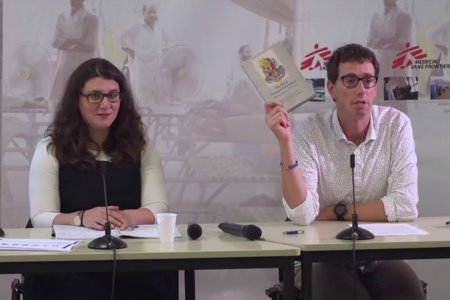 MSF
Conference
MSF
Conference
Humanitarian anthropology : conference with Sharon Abramowitz
10/23/2017 - 06:00 PM 08:00 PMSharon Abramowitz is an anthropologist and a visiting researcher at the Department of Anthropology at Rutgers University, co-editor of recently published Medical humanitarianism. Ethnographies of practice. She has devoted much of her work to responding to epidemics - most recently in Ebola, and in West Africa, Liberia in particular.
During the conference organized by MSF-Crash on 23 October 2017, she discussed the contribution of medical anthropology to humanitarian action as well as her latest book and most recent projects.
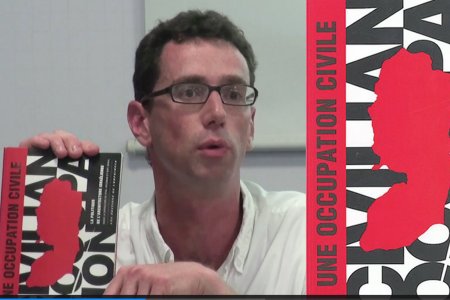 Conference
Conference
Eyal Weizman - Forensic Architecture at work
02/15/2016 - 07:00 PM 09:30 PMEyal Weizman, the founder of « Forensic Architecture » at the Goldsmiths College (University of London) came to present the project as well as a number of his works at a MSF - Crash conference organised at MSF.
 Conference
Conference
The polio eradication campaign put to test
02/04/2014 - 01:30 PM 07:30 PMThe polio eradication campaign has indeniably and remarkably succeeded in tumbling down the number of polio cases worldwide. But difficulties currently faced by the Programme -pockets of social resistance in several countries, reinfection of some countries, outbreak of epidemics associated with strains of vaccine-derived polio viruses- indeed challenge one of the main assumptions underlying the objective of the eradication itself : the full compliance of an entire population to a public health program.
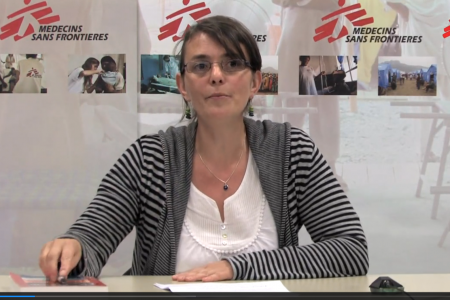 Conference
Conference
Living a Natural Disaster
11/03/2010 - 07:00 PM 09:00 PMPeople wandering through the rubble in Haiti, arms outstretched begging for help amid the floods in Pakistan: the media coverage of disasters invariably features helpless victims, overwhelmed by the disaster, waiting to be helped...
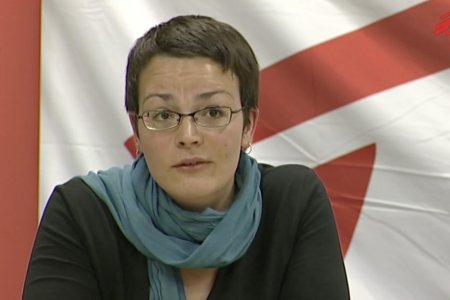 Lena Mucha
Conference
Lena Mucha
Conference
From their point of view
03/10/2009 - 07:00 PM 09:30 PMThe reasons why we are accepted, tolerated or sometimes rejected in the contexts where we work are often obscure. Caroline Abu-Sada and her team of sociology student shed some light on these issues.
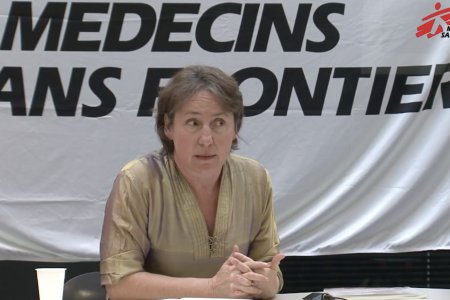 Jacob Zocherman
Conference
Jacob Zocherman
Conference
Grounds for divorce ? MSF and the international criminal court
04/08/2009 - 08:30 PM 10:30 PMIn 1998 MSF decided to support the creation of the International Criminal Court. 10 years later MSF stated that it ‘would not cooperate and would not transmit any information to the ICC'. How can we explain this change of position?

